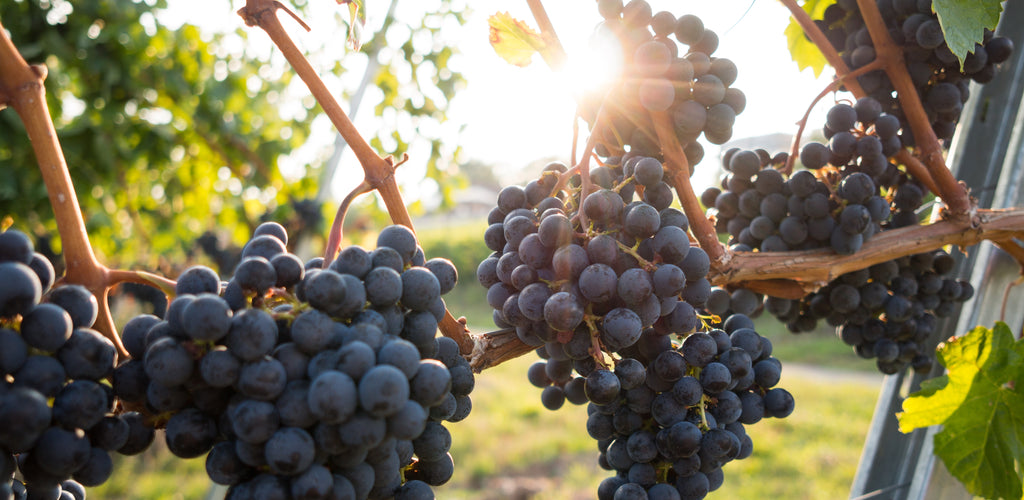Biodynamic, Organic, Natural: Decoding Sustainable Wines

It’s Earth Day! As the wine industry continues to make strides towards a more sustainable future, plenty of terms and catchphrases have been cropping up in viticultural vernacular. But what do they actually mean? We’ve broken down three of the buzziest buzzwords to bring some clarity to your conscious consumption.

Organic
Let’s start simple. Generally, organic agricultural refers to farming processes that do not use chemical based pesticide or fertilizers. In the wine world, there are two versions of certified organic wines; those with additives and those without.
In the USA, wines are only considered organic if they are made with organically grown grapes without any added sulfites.
In Europe and Canada, wines are considered organic if they are made with organically grown wines that may contain added sulfites. Non-American organic wines may contain egg whites and animal enzymes that were used in the filtration process. As such, some organic wines are not considered vegan.
Becoming an organic wine producer, however, can be an extremely costly process. Depending on the region, wineries may be obliged to follow organic practices for multiple years before they can even apply for certification. Additionally, if neighbouring properties are not organic, producers may be required to invest in a barrier that protects their crops from impact of chemical pesticides and fertilizers. Finally, the process of certification itself can be expensive, with annual inspections, consulting fees, and more. Because of this, many wineries, notably Old World estates, choose to follow organic processes without pursuing official certification.

Biodynamic
While certifications for organic wines vary from country to country, the requirements to be considered biodynamic remain the same worldwide. Put simply, it is a pseudo-scientific practice that revolves around the astronomic calendar. As stated by Wine Spectator, “Each day coincides with one of the elements: earth, fire, air and water. Days are organized by fruit days (preferable for grape harvesting), root days (pruning), leaf days (watering) and flower days, where the vineyard should be untouched.” Biodynamic viticulture promotes organic practices, as they depend on compost rather than chemical fertilizer, though sulfites are still permitted.
Many criticize biodynamic winemaking as too mystical and claim that harvests would yield the same results if farmers had simply implemented organic practices. Though it sounds like a very new age approach to agriculture, biodynamic farming was started some 100 years ago and has been adopted by major wine producers worldwide. Although it isn’t necessarily scientific, many producers report an improved quality of wine, and biodynamic certified wines often score higher in blind taste tests.
What’s more, this process has encouraged complimentary plantings and wild growth within vineyards to supplement the soil with additional nutrients and deter pests from affecting the vines themselves. These symbiotic plantings supplement the natural ecosystem of the vineyard, and promote a sustainable culture within the area.
Natural
The third and final term to be clarified is natural wine. Natural wine refers to wines with low-intervention that have “fermented spontaneously with native yeast.” Natural wines are essentially unmanipulated and have not gone through the typical refining processes that other non-natural wines go through. As such, natural wines often appear cloudy with floating particles.
A small amount of sulfites are permitted in natural wine, and are typically added just before the bottling process as a stabilizer, ensuring the wine your pour into your glass is as good as the wine that initially went into the bottle.
The natural wine movement is said to have developed in France, as winemakers attempt to go back to the initial way wines used to be made; with natural fermentation.
The Final Sip
Can a wine be natural, biodynamic, and organic at the same? Technically yes, if biodynamic practices are employed in a winery that uses no chemical additives, and then undergoes minimal intervention. However, these terms are not to be used interchangeably!





